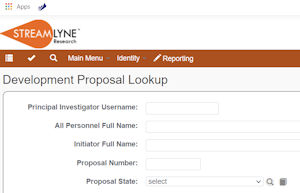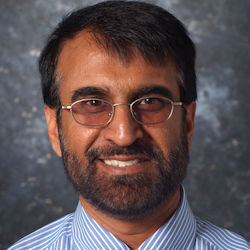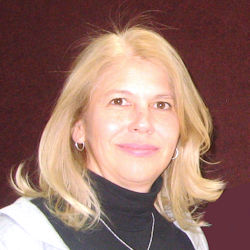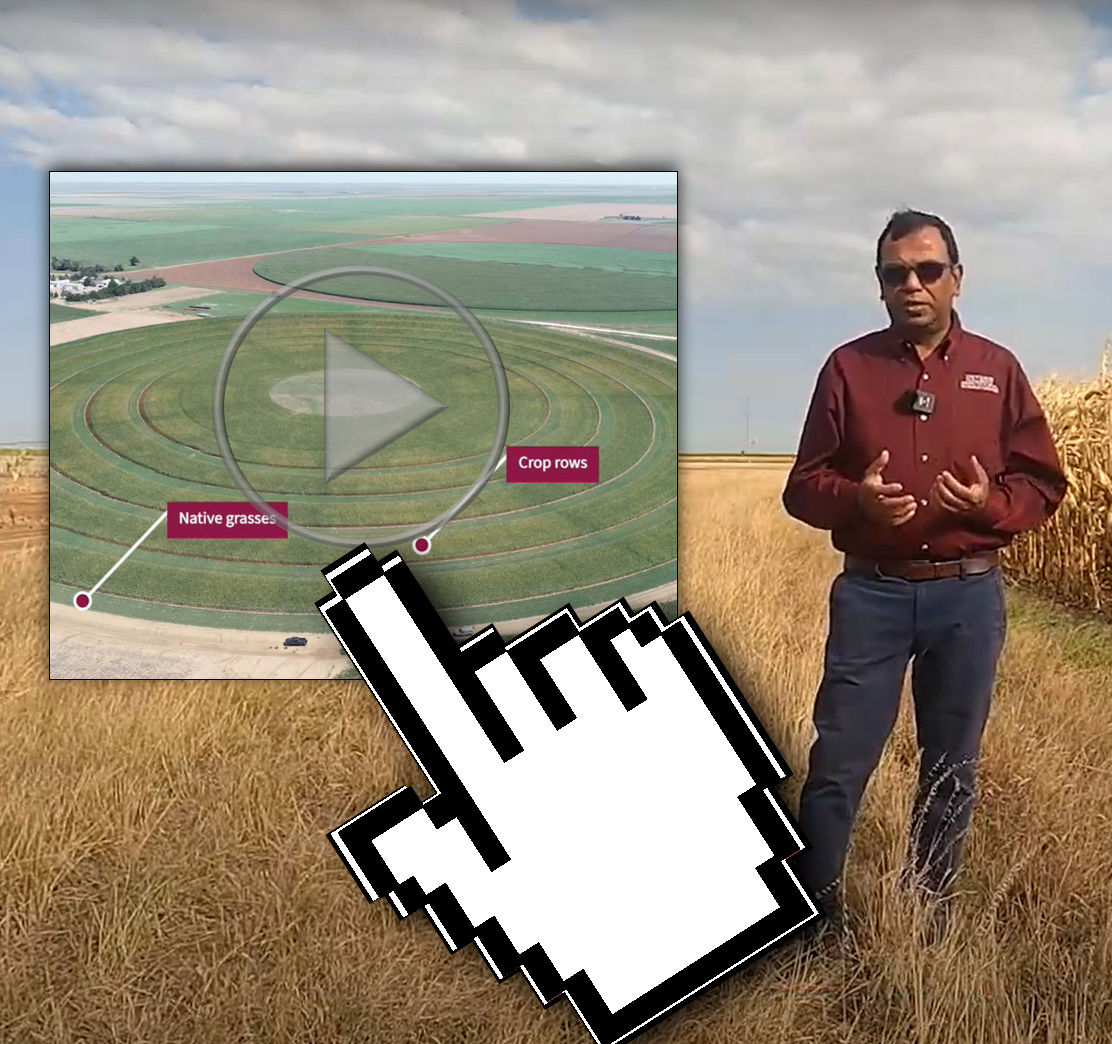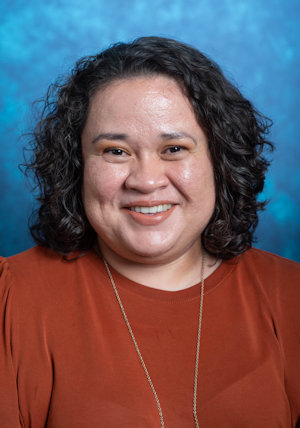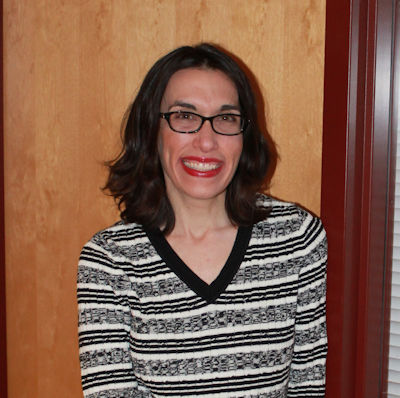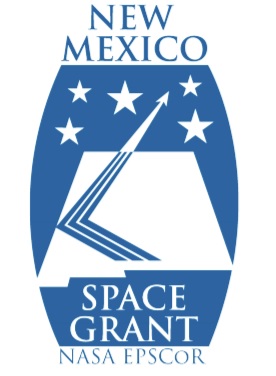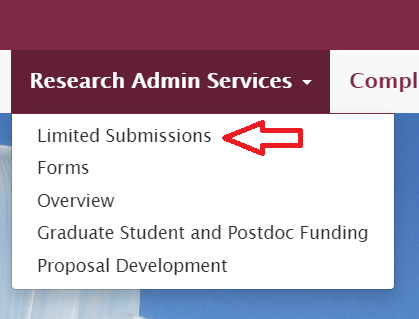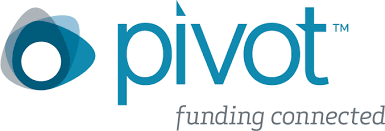 |
|
Office of Research, Creativity, and Strategic Initiatives: Who, What, Where, When and Why?
By Luis Cifuentes, Ph.D., Vice President for Research, Creativity and Strategic Initiatives
At the January 10th, 2022 Town Hall, New Mexico State University (NMSU) Chancellor Dan Arvizu announced organizational changes resulting from consolidating the chancellorship and presidency of NMSU under Chancellor Arvizu. The published organizational chart includes a new office, Research, Creativity, and Strategic Initiatives (RCSI), which I have the honor of leading. Who is RCSI? Research Administration Services (RAS), Research Integrity and Compliance (RIC), Research Cores Program (RCP), New Mexico Space Grant Consortium, New Mexico Water Resources Research Institute, and the Molecular Biology and Interdisciplinary Life Sciences Graduate Program join RCSI from the former Office of the Vice President for Research and Graduate School. Originally with the Chancellor, the Office of Strategic Initiatives moves to RCSI. Finally, Lenny Martinez, Vice President for Economic Development, will also be part of RCSI, principally supporting Goal 3. What is RCSI? The office will oversee NMSU’s research and creativity enterprise and collaborate with other university entities on economic and workforce development. RCSI will continue to strategize and implement tactics to achieve two key LEADS 2025 imperatives: Carnegie R1 status and meeting grand challenges (agricultural modernization, climate, energy, health, security, STEM education, water) with local implications. Goal 2 is RCSI’s strategic foci. RCSI will carry on its collaborative, tactical relationship with Goal 1, particularly in support of graduate studies and strategic initiatives on behalf of student success. In turn, RCSI will support Goal 3 by working to amplify the impact of research, scholarship, and creative activity. Where is RCSI? For the foreseeable future, RCSI’s units will remain at present locations. Moving leadership to the center of campus and closer to the Office of the Chancellor is under consideration. When is RCSI? As noted earlier, RCSI was announced on January 10th, however, it will take time to further refine its vision and mission and to create and implement an updated strategic plan. RCSI should be fully operational by the end of Spring semester. Why RCSI? Functionally, RCSI arose from merging offices of the Chancellor and President into one organizational structure. As noted by Chancellor Arvizu at the January 10th Town Hall, RCSI and other new organizational units are designed to make sure form follows function, to be responsive to the LEADS 2025 strategic plan, and to streamline operations and be more effective in our mission. RCSI no longer includes the Graduate School, another step towards meeting recommendations of the Council of Graduate School strategic consultation report delivered in late 2018: to clearly define the relationship between the provost and the dean of the Graduate School. Unchanged is our commitment to grow research and creative activity programs, to enable faculty, scholar, researcher, and student success, to provide steadfast stewardship of sponsor funds, to promote research compliance, and to help communicate the value of NMSU research and creative activity to all our external private and public stakeholders. As RCSI, we are better positioned to partner with the community, state and nation and contribute to the educational achievement and economic health of the peoples of New Mexico. |
|
Streamlyne Pre-award Module is Now Live
By Alisha Giron, Assistant Vice President for Research
NMSU successfully launched the first Streamlyne module almost two weeks ago. Grants & Contracts Administrators in Research Administration Services (RAS) are the first to use the module for Proposal application/budget development and submission. As we transition from the Academic Research & Grants System (ARGIS) to Streamlyne, other members from the research administration community will be brought into the process moving toward full implementation. Last week, we entered the Pre-Award Module stabilization period so RAS managers are meeting with members of the research community to gather first impressions and other feedback. For updates on Streamlyne implementation, please continue to visit https://research.nmsu.edu/NewsAndBlogs/Streamlyne.html. For the Streamlyne support page, please visit https://research.nmsu.edu/Streamlyne.html. |
|
Recognizing NMSU's Large Proposal Submitter (January 2022)
By Hamid Mansouri Rad, Ph.D., Senior Proposal Development Specialist, RAS
Congratulations to Drs. Muhammad Dawood, Jason Jackiewicz, and Wanda Bulger-Tamez for each submitting a proposal exceeding a million dollars in the month of January. Professor of Electrical and Computer Engineering, Dr. Dawood in collaboration with Margaret Campos, the manager of the Telemetry and Missile Systems R&D department at Physical Science Laboratory (PSL), and PSL R&D engineers Shayan Abotalebi and Jacob Wilson submitted a $2.4 million proposal to the NSF Major Research Instrumentation (MRI) program to secure a spheric electromagnetic anechoic chamber. The chamber will advance NMSU’s teaching and research capabilities in several areas including the advancement of Internet of Things hardware security, low frequency and Ultra-Wide Band antennas, novel biological sensors, novel 3-D printed volumetric circuits/antennas, 5G and crowded spectrum control, Unmanned Aircraft Systems, broadband connectivity for rural regions, Earth and disaster preparedness monitoring, High-Altitude Platform Stations, satellite antennas, and hypersonic antennas. The chamber will also enable collaborative research opportunities with faculty at New Mexico Tech and the University of Texas at El Paso. For more information, please contact Dr. Dawood at dawood@nmsu.edu. Dr. Jason Jackiewicz, professor of Astronomy, submitted a $1.3 million proposal to NSF MRI to acquire instrumentation for a node in the global Stellar Observations Network Group (SONG) observing network for ultra high-precision seismology of bright stars. According to Dr. Jackiewicz, the proposed SONG in New Mexico facility will be an extremely valuable asset for our undergraduate and graduate students, as well as our astronomy faculty. As he puts it, the instrumentation will be some of the most precise in the world for asteroseismology, and offers many research opportunities for decades. The international collaboration aspect is also exciting for NMSU, with SONG in New Mexico being the only U.S. node of the network, enabling the broader U.S. astronomy community to participate in important long-term observations of some of the most interesting stars in the sky. Dr. Jackiewicz can be reached at jasonj@nmsu.edu. Dr. Wanda Bulger-Tamez, NMSU's STEM Outreach Center and the Mathematically Connected Communities program, in partnership with the New Teacher Center, have submitted a proposal in response to High Plains Regional Education Cooperative’s Focus on Algebra – Professional Learning Support Services solicitation. The proposal aims to effectively build the content and skills of grade 6-9 mathematics teachers and the instructional leaders who support them across the state of New Mexico through the following activities:
|
Dr. Muhammad Dawood, Professor of Electrical and Computer Engineering Dr. Jason Jackiewicz, Professor of Astronomy |
Circular Buffer Strips of Native Perennial GrassesBy Hamid Mansouri Rad, Ph.D., Senior Proposal Development Specialist, RAS
Declining Ogallala Aquifer and other agricultural challenges such as increasing climate extremes, strong winds, low and extreme rainfall events, wind and water erosion, decreasing soil health, biodiversity and water use efficiency are threatening sustainability of rural economy in the Southern Great Plains. Addressing these challenges has been the motivation for Dr. Sangu Angadi’s long term, landscape level study at the Agricultural Research Center at Clovis (ARCC). Dr. Angadi, professor of crop stress physiology in the Department of Plant and Environmental Sciences, along with his multidisciplinary team at the ARCC have been assessing a novel concept of circular buffer strips (CBS) of native perennial grasses that has been shown effective in addressing these agricultural challenges. In this video, Dr. Angadi and his group explain the CBS concept. Their effort is funded by USDA-NIFA and NMSU Agriculture Experiment Station. |
|
LEADS 2025 Goal 2: Tactic 2.4.2 Update: Telling the Stories behind the ResearchBy Adriana Chávez, Senior Communications Specialist, Marketing and Communications
The Marketing and Communications team continues to explore new strategies for highlighting NMSU research stories in the media. Along with our weekly Eye On Research feature for the Las Cruces Sun-News and the Carlsbad Current-Argus, we regularly feature research-related stories in our ACES Magazine, College of Arts & Sciences magazine, and Panorama publications. We are readying a social media campaign with fresh hashtags tailored to NMSU, and we hope to share those hashtags soon with all NMSU colleges and departments to use on their social media pages as well. We are also looking for stories to feature in short videos that will accompany our longer print stories on social media and the news.nmsu.edu website. In those videos, we would like to highlight the stories behind the research, as well as illustrate the impact each research project will have on our community. If you have a story you would like to see shared with the media and the public, or if you have any suggestions for enhancing our research story coverage, please feel free to reach out to contact me at adchavez@nmsu.edu. As a reminder, the Marketing and Communications office is more than happy to provide guidance and training for media interviews, as well as assistance in responding to media requests and contacts. |
Adriana Chávez, Senior Communications Specialist, NMSU |
Program Evaluation Services at NMSU
Hamid Mansouri Rad, Ph.D., Senior Proposal Development Specialist, RAS
This is to remind NMSU researchers about program evaluation services here on campus. Funding agencies often require external evaluation of proposed projects, and experts in this area are available right here at NMSU. Led by Dr. Rachel Boren, the Southwest Outreach Academic Research (SOAR) Evaluation and Policy Center is housed in the College of Health, Education and Social Transformation (HEST). SOAR serves as the evaluators for several projects at NMSU across many departments and funding agencies. SOAR offers key services needed for these evaluations, including:
SOAR is supported by a postdoctoral researcher and graduate students, in different NMSU departments, who also support faculty and student research initiatives on campus. For more information about SOAR please contact Dr. Boren at rboren@nmsu.edu. |
Dr. Rachel Boren, Director, SOAR |
NMSGC Accepting Scholarship, Fellowship ApplicationsBy Cristina Esquivel, Program Specialist, New Mexico Space Grant Consortium
New Mexico Space Grant Consortium (NMSGC) is accepting applications for scholarships and fellowships for the fall 2022 and spring 2023 semesters. The application period will be open until April 11. NMSGC offers scholarships and fellowships to students enrolled in any community college or university in New Mexico. Applicants must be U.S. citizens and must be majoring in a STEM field, with exception of the Pre-Service Teaching Undergraduate Studies Scholarship and the In-Service Teacher Graduate Studies Fellowship. The Fall 2022 – Spring 2023 scholarships and fellowships offered are:
For more information, or to apply, go to https://nmspacegrant.com/ For questions, contact Cristina Esquivel at cmesquiv@nmsu.edu. |
|
Limited Submission Funding OpportunitiesBy Hamid Mansouri Rad, Ph.D., Senior Proposal Development Specialist, RAS
Research Administration Services maintains a list of limited submission funding opportunities for NMSU research community. The list is accessible through a link on the Research website, through the Research Administration tab. NMSU users can also access the list directly on SharePoint. We encourage NMSU researchers to periodically visit the site and if they are interested in any of the opportunities to please inform us by sending email to ras@nmsu.edu. |
|
Pivot Funding Opportunity Database
By Hamid Mansouri Rad, Ph.D., Senior Proposal Development Specialist, RAS
This is a reminder that in order to assist NMSU faculty and staff in locating external funding opportunities, the OVPRCSI has purchased a subscription to ProQuest’s Pivot available at https://pivot.proquest.com/session/login.
To request a one-on-one or group Pivot training, send email to hamid@nmsu.edu. |
|
Graduate School |
|
Effective Mentoring of Graduate Students
By Carol Flinchbaugh, Ph.D., Associate Professor of Management and Interim Associate Dean, Graduate School
February is National Mentoring Month. Mentoring is perhaps one of the most important roles of graduate faculty, and often the most overlooked. As faculty mentors, we knowingly (or unknowingly) shape our student’s understanding of what it means to be a future faculty or leader in their field. The behavior we role model to our students can lead them to success in their future careers. Here are some things we can do to strengthen our mentorship, especially as it comes to mentoring in the research space*:
The need for student support beyond mentoring has been amplified during the pandemic, given increasing reports of students' increased isolation and stress. To identify existing campus supports, on Monday, February 14th at 3pm, there will be a Graduate Student Wellbeing Workshop for Department Heads and Graduate Program Directors. Please join Ann Goodman (Dean of Students), Bruce Vandevender (Director, Student Assistance Services), Amanda Blair (Int. Executive Director of Aggie Health and Wellness), and the Graduate School as we identify campus resources that can help support our graduate students. Workshop Zoom link: https://nmsu.zoom.us/s/99875279709 *This information was modified from an EAB infographic. See more information on strategies for effective mentoring here: EAB infographic on mentoring |
|
Need Guidance on Securing External Funding? Contact Me!
If you are an NMSU graduate student or post-doctoral scholar needing guidance on securing external funding, please contact me at fee@nmsu.edu. Please also visit the list of current funding opportunities that I maintain on SharePoint and let me know if you have any questions. Chong-Hwey Fee |
|
Questions and comments regarding NMSU’s Research Digest should be directed to Hamid Mansouri Rad, Ph.D. at hamid@nmsu.edu, (575) 646-6429. |
|

